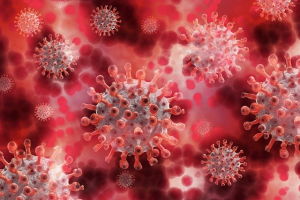Selenium is a natural trace element that has an important role in the functioning of the immune system (summarized in an earlier seleniumfacts.com article).

SARS-CoV-2 is a single-stranded RNA virus responsible for COVID-19 infections. Covid-19 infections have a complex metabolism that is comparable to RNA virus infections such as coxsackievirus, influenza virus, Hanta virus, and HIV virus infections.
Selenium Deficiency Promotes Mutations, Replication, and Increased Virulence of RNA Viruses
Selenium deficiency – frequently defined as serum selenium status below 70 mcg/L – increases the risk of infection with RNA viruses:

